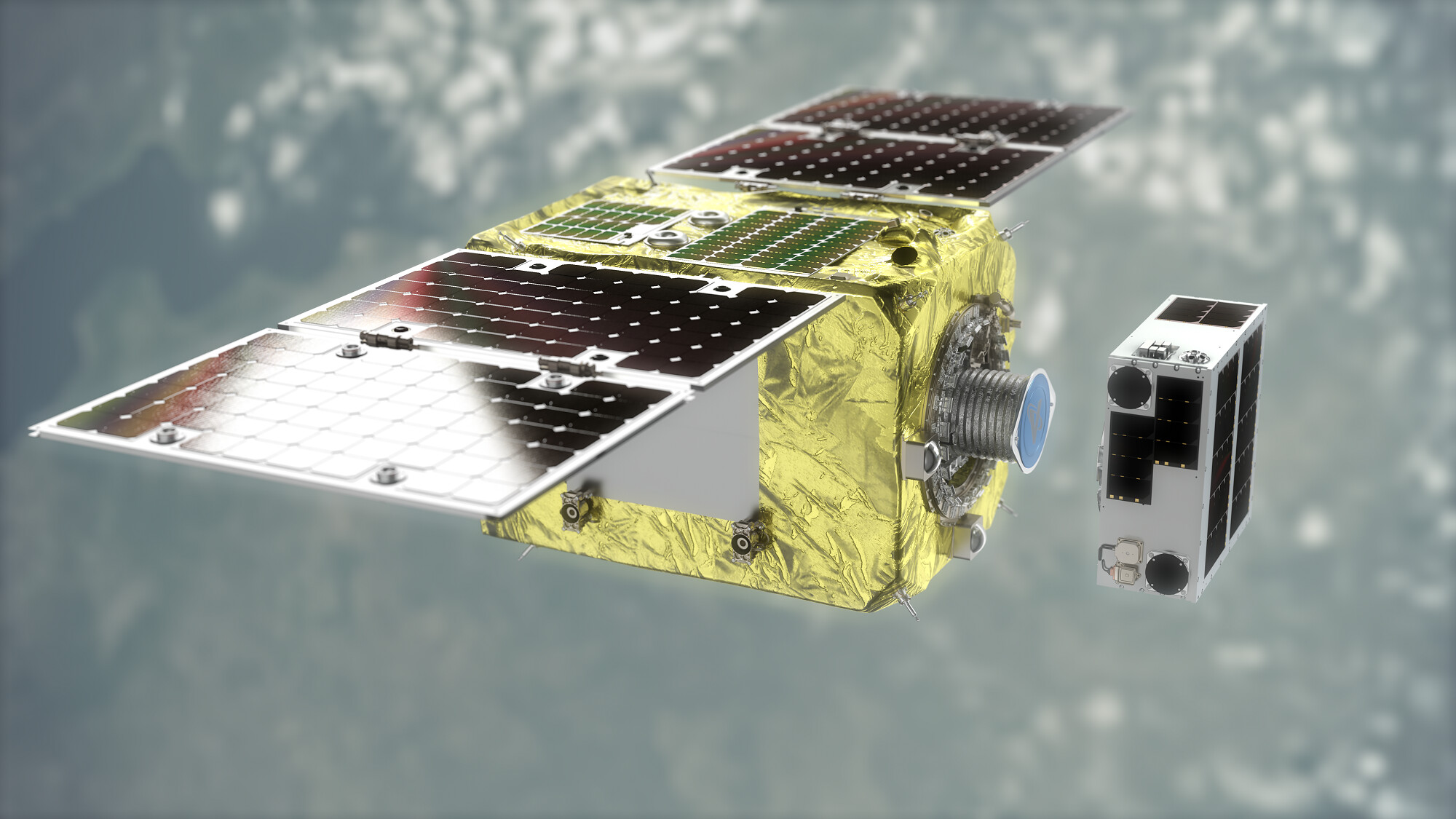
Rocket Lab Will Soon Help Remove Space Debris
Space is an unimaginably vast and complex destination filled with unique mysteries and opportunities. One of the most basic forms of space involves orbiting our own planet Earth. Here we have access to this one-of-a-kind environment where science, research, development, and more can be performed. However, due to a large list of reasons over the last few decades, more and more space debris has been filling our orbit, causing various challenges and concerns.
Rocket Lab has been working with many different companies recently to launch unique satellites and payloads into orbit and beyond. Not long ago Rocket Lab signed a deal with Astroscale to launch an orbital debris removal demonstration mission. This mission is meant to test and demonstrate the possibility to remove larger pieces of space debris from orbit.
While right now space debris does not present a significant problem, it could change for the worse if we do not prevent and remove existing debris. Whether it was from missile tests, expired satellites, or general junk, over the past few decades more and more space debris has begun orbiting the Earth. Here I will go more in-depth into this upcoming mission with Rocket Lab and Astroscale and how the two plan to remove space debris.
Upcoming Mission

Rocket Lab is a very appealing launch provided to many different companies. Electron provides customers with an affordable launch option where they have control of destination, dates, and the overall missions. Whereas on rideshare missions some of these benefits can be lost. This is part of the reason why we see Rocket Lab launching Electron so consistently and partnering with different unique companies and agencies around the globe. The contract with Astroscale is no different. Late last year, Rocket Lab tweeted saying, “Space junk, we’re coming for you! We’re excited to announce we’ve signed a deal with @astroscale_HQ to launch an orbital debris removal demonstration mission.” This tweet included a picture highlighting the payload and its intention. The same day Rocket Lab officially announced it had signed a dedicated launch contract with Astroscale Japan Incorporated, a subsidiary of Astroscale Holdings Incorporated, a market leader in satellite servicing and long-term orbital sustainability.
The mission is scheduled for lift-off from Rocket Lab Launch Complex 1 in New Zealand in 2023. The Electron rocket will launch the Active Debris Removal by Astroscale-Japan (ADRAS-J) satellite, which has been selected by the Japan Aerospace Exploration Agency (JAXA) for Phase I of its Commercial Removal of Debris Demonstration Project (CRD2), one of the world’s first technology demonstrations of removing large-scale debris from orbit. The payload is intended to be delivered to a precise orbit by Electron’s Kick Stage. This is an additional feature that Rocket Lab offers apart of Electron that seems to make the company much more appealing for different missions. The kick stage is a nimble but powerful extra stage on Electron, designed to circularize the orbits of small satellites. It takes small satellites exactly where they want to go, offering precision and flexibility for orbital deployment. In this specific launch, the kick stage is an important part of the mission. Specifically, the ADRAS-J satellite is designed to rendezvous with a piece of orbital debris, a long abandoned upper stage rocket body. ADRAS-J aims to demonstrate proximity operations and obtain images of the rocket body, delivering observational data to better understand the debris environment. A planned second phase of the mission, which has yet to be completed, intends to demonstrate the de-orbit of the debris.
“The ability to actively remove satellites and debris from orbit at the end of their operational life will likely play a key role in ensuring a sustainable space environment for the future, so we’re delighted to enable Astroscale to demonstrate new and innovative solutions in this field,” said Rocket Lab Founder and Chief Executive Officer, Peter Beck. “Rendezvousing with a piece of debris on orbit, traveling at around 27,000 km per hour, is a highly complex task that requires absolute precision when it comes to orbital deployment. Electron’s Kick Stage has demonstrated this precision across 18 missions, providing in-space transportation to place our customers’ satellites exactly where they need to go.” Not only this, but the founder and CEO of Astroscale mentioned, “Reliable and commercially viable launch vehicles like Rocket Lab’s Electron rocket enable frequent and flexible access to space, allowing us to advance our on-orbit services which are fundamental to the growth of the space infrastructure and economy. Rocket Lab and Astroscale have become leaders in our respective markets and I am thrilled to collaborate on ADRAS-J, a ground breaking mission that will shape the technologies and policies needed to drive space sustainability forward.” It’s clear that both of the parties involved are very excited about the partnership and what the future has to offer regarding this mission and more.
What Is Astroscale?

Now that we know a bit more about the upcoming mission with both Rocket Lab and Astroscale, we can learn more about this company Rocket Lab is partnering with and how they plan to remove space debris. Astroscale is a private company with a vision for the safe and sustainable development of space for the benefit of future generations, and one of the only companies solely dedicated to on-orbit servicing across all orbits. Founded in 2013, Astroscale is developing innovative and scalable solutions across the spectrum of on-orbit servicing, including life extension, in situ space situational awareness, end of life, and active debris removal, to create sustainable space systems and mitigate the growing and hazardous buildup of debris in space. Astroscale is also defining business cases and working with government and commercial stakeholders to develop norms, regulations, and incentives for the responsible use of space. Headquartered in Japan, Astroscale has an international presence with subsidiaries in the United Kingdom, the United States, Israel, and Singapore. Astroscale is a rapidly expanding venture company, working to advance safe and sustainable growth in space and solve a growing environmental concern. One of the ways they do this is with partnerships around the world.
Astroscale recognizes that there is an institutional market for ADR, or Active Debris Removal, and is developing missions to identify and capture debris that is already in orbit. Removing clients that are currently in orbit requires significant preparation from a technical and regulatory perspective as these objects were not prepared for servicing before launch and are owned by governments. Working with national space agencies and international organizations, Astroscale is developing missions that incorporate innovative solutions for the capture and removal of environmentally critical debris, such as rocket upper stages and defunct satellites that are already in orbit. As mentioned prior, JAXA has selected Astroscale and its Active Debris Removal by Astroscale-Japan (ADRAS-J) satellite as the commercial partner for Phase I of its Commercial Removal of Debris Demonstration project (CRD2) to focus on the observation, characterization, and eventual removal of a Japanese rocket body.
Looking at how exactly this satellite intends to remove space debris is very unique. Phase I is a precursor for ADR and will focus on the data acquisition on an upper-stage Japanese rocket body. Astroscale will be responsible for the manufacturing, launch, and operations of the satellite that will characterize the rocket body, acquiring and delivering movement observational data to better understand the debris environment. Phase I will launch by April 2023. Soon after launch, the satellite deploys its solar panels on either side. Apart of Phase 1, the satellite will then work to rendezvous with the JAXA rocket upper stage. It then makes a proximity approach using a safety ellipse. VISCam provides the necessary navigation from 80 kilometers to 1 kilometer distance from the upper stage. Once within 1 kilometer, the satellite switches to IRCam to provide navigation until only 250 meters away. Lastly, LiDAR provides the final navigation once under 250 meters away. Once close enough to the upper stage, the satellite will circle it and observe the space debris. Using its multiple thrusters the satellite will work to align with the upper stage in this case. This will be the end of the mission for Phase 1. If everything goes according to plan it will provide the company with a lot of confidence in the hardware and future of removing larger pieces of space debris. We can expect to see this satellite take off from Launch Complex 1 on top of an Electron rocket in 2023.
Conclusion
Over time space debris has become a larger and more concerning issue. For a variety of reasons, there is a massive amount of tiny and large pieces of space junk orbiting our planet. In the future, this could become a very significant problem. Rocket Lab recently announced they had teamed up with Astroscale apart of a contract. Together the two are working to launch a satellite meant to remove larger pieces of space debris. This mission is planned to take off in early 2023. We will have to wait and see how this mission progresses and the impact it has on the space industry.



